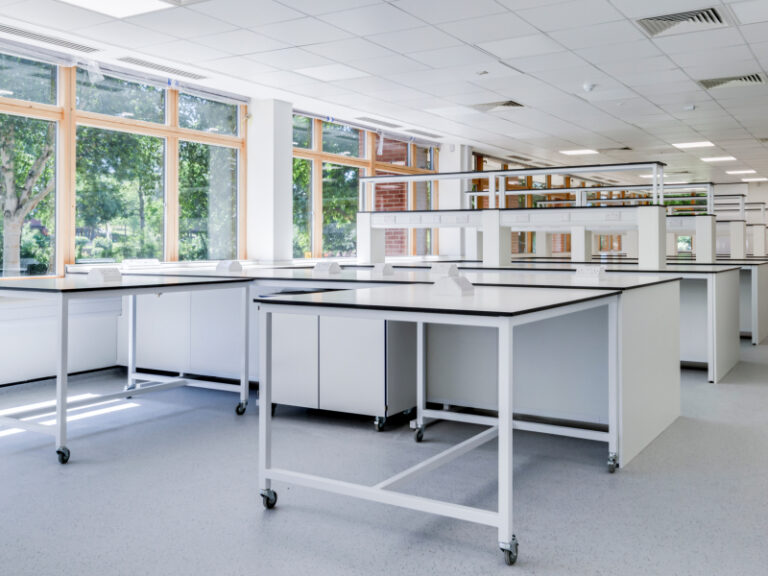In the fast-paced world of healthcare, the ability to adapt and provide immediate access to essential services is paramount. Hospitals, clinics, and other medical facilities are always looking for ways to improve their services, and one such innovation that has become invaluable is the use of mobile laboratory tables. These versatile, mobile units offer more than just mobility—they provide essential flexibility for healthcare workers and ease of access for patients, particularly in environments that require quick responses and precise diagnostics.
Flexibility and Mobility for Healthcare Providers
Healthcare environments are often dynamic, with various needs arising at a moment’s notice. Mobile laboratory tables provide medical professionals with the flexibility to quickly relocate diagnostic tools, specimens, and other essential equipment. Whether in a busy hospital setting, a mobile clinic, or a field hospital, these tables can be moved from one room to another or between departments, ensuring that critical laboratory functions can be maintained in a timely and efficient manner.
The ease of moving the tables also allows healthcare workers to set up laboratory services in different areas based on patient needs. For example, during a pandemic or health crisis, mobile laboratory tables can be deployed to emergency rooms, isolation wards, or temporary testing stations to increase efficiency without compromising on patient care.
Efficient Space Utilisation and Improved Workflow
In many healthcare facilities, space is at a premium. Mobile laboratory tables provide a cost-effective solution to maximise the use of available space. These tables are designed to be compact and easy to store when not in use, allowing medical professionals to free up valuable floor space for other critical operations.
Moreover, the mobility of these tables helps improve workflow. Healthcare workers can set up testing or diagnostic equipment close to where it’s needed, reducing the time spent transporting samples or materials across different areas. This reduces unnecessary delays and ensures that lab results and patient care happen without interruption, improving the overall efficiency of healthcare operations.
Enhanced Access to Laboratory Services in Remote Areas
Mobile laboratory tables have become a game-changer in providing access to healthcare services in underserved or remote areas. By equipping mobile clinics or field hospitals with these tables, healthcare providers can perform critical diagnostic tests on-site, eliminating the need for patients to travel long distances to access lab services. This has been especially important in rural communities or during health emergencies when quick access to diagnostic tests can be life-saving.
These mobile units can be easily set up in a variety of locations, from community health centres to pop-up clinics in disaster zones, providing much-needed medical care where it’s most needed. In areas where healthcare infrastructure is limited, mobile laboratory tables ensure that essential services are always within reach.
Supporting Better Patient Care with Immediate Results
Another key benefit of mobile laboratory tables is their ability to speed up the diagnostic process. With tests and diagnostic equipment close to the patient, results can be processed immediately and shared with healthcare providers without delay. This quick access to laboratory results is crucial for timely treatment and can significantly improve patient outcomes.
For instance, in emergency medical situations, having laboratory results readily available can help doctors make faster, more informed decisions. The ability to process tests on-site means that patients can begin treatment almost immediately, reducing the time spent waiting for lab results to return from off-site locations.
Mobile Laboratory Tables: A Sustainable Option
In addition to their practical benefits, mobile laboratory tables are an eco-friendly choice for healthcare facilities looking to reduce their environmental impact. Many of these tables are designed with sustainable materials and are built to last, ensuring long-term durability. Their versatility also reduces the need for additional infrastructure, such as permanent laboratory setups, which can be costly and energy-intensive.
Moreover, some models are designed with energy-saving features, such as LED lighting and efficient power use, which further contributes to sustainability efforts within healthcare facilities.
Conclusion
Mobile laboratory tables represent a significant advancement in enhancing healthcare access. By offering flexibility, improving workflow, and making diagnostic services more accessible in remote or underserved areas, these tables play a crucial role in modern healthcare settings. Their mobility not only makes them an indispensable tool for healthcare workers but also ensures that patients receive timely, accurate care in a variety of situations. With healthcare becoming increasingly dynamic, mobile laboratory tables provide the support needed to meet the demands of the modern medical world.




